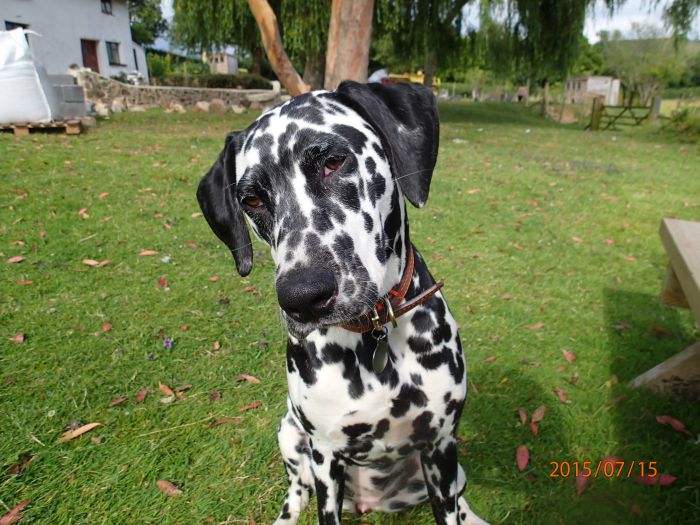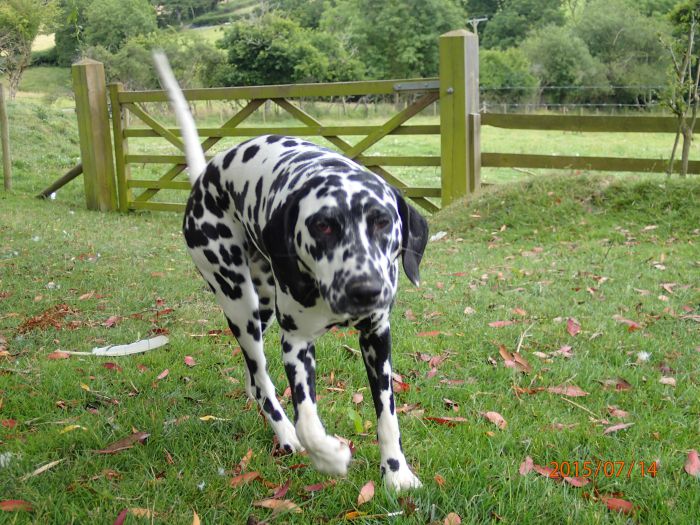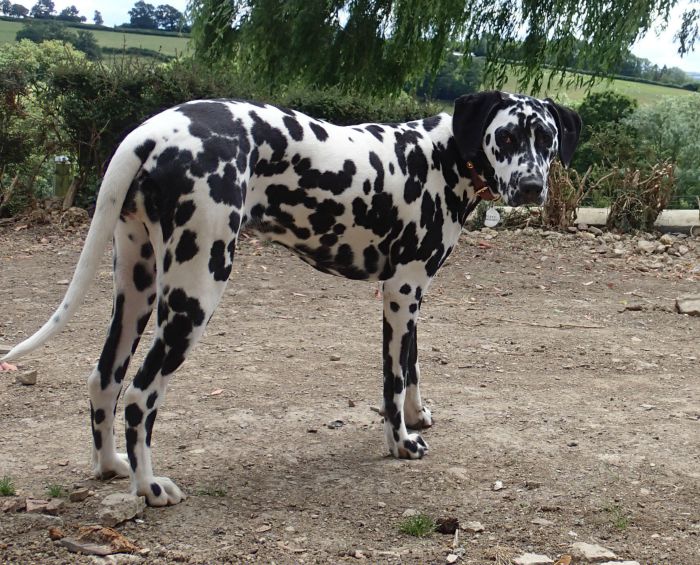Dotty |
Female |
|
Dottie, 7 months old Dottie arrived in mid-June. She had been recently re-homed just a few miles away from us, but unfortunately one of the existing dogs at her new home bit her, so she was moved quickly to us. We had been thinking that ideally, our preference was for an 18 month old – just big enough to be boisterous and need plenty of exercise, but over the toilet training and crying at night stage. So finding ourselves with a younger dog was a little surprising, but we didn’t mind. Our house had been quiet for a few months after our older Dalmatian had died. We’d thought hard about having another dog and which breed we would go with, but finally decided that we were ready for a new spotty face and waggy tail. Dottie’s nature was very sweet; she had clearly been loved and cared for, and, as with any dog that age it was initially difficult to see how anyone could have given her up. But, after the first few nights I could see how she might have been considered a handful. I was home alone that week and every time I attempted to cook or eat meat I got the full-on barking and howling effect. She clearly thought that she should be eating the meat, not me. I started wondering how it was going to work out – were we going to have to become vegetarians to live with this dog? It reached a climax a few days later when, as we live on a smallholding, we had to prepare an entire sheep for the freezer; I braced myself for the noise and started labelling my freezer bags. Despite the temptation and smell, she was really well behaved and barely took any notice – we had turned a corner! The next few weeks had the occasional set-back, but overall it was fairly quiet during our mealtimes (and hers). Many of Dottie’s idiosyncrasies were reminiscent of our previous dog, highlighting just how strongly the breed characteristics affect their behaviour. She had arrived from a town environment, so her eyes were almost standing on stalks when she saw turkeys, guinea fowl and sheep strolling around – all those playmates. It didn’t take long for the turkeys to become ‘ordinary’ and to learn, from one of our older ewes, that sheep were not for chasing. Just like our previous dog had found out, but certainly not what a terrier would do. I hadn’t had a puppy in the house for many years, so a couple of books from Amazon, together with a few conversations with Darren at British Dalmatian Welfare, soon got me up to date with current thinking on training, spaying etc. Dottie did have to have her dog bite stitched (under general anaesthetic), and came into season the first week of arrival, so certainly had much to contend with in addition to leaving her home. Despite all this, I’m pleased to say that she’s settling in marvellously well. We’re making steady progress with recall training, and she no longer feels the need to check all our kitchen work surfaces multiple times a day (still occasionally though). I was expecting to have to put in lots of work to help settle in our new dog, especially with her being that bit younger that we had recent experience of. And I have, but only for the first few weeks. Life feels back to normal now, she comes out with us in the morning to let out the ducks, turkeys and geese, then goes for a walk around the field or down the track before feeding the pigs then going in for breakfast. The days differ depending on our other commitments, but always back for the evening rounds. It makes me wonder why we waited so long to have another dog. Thanks British Dalmatian Welfare |



